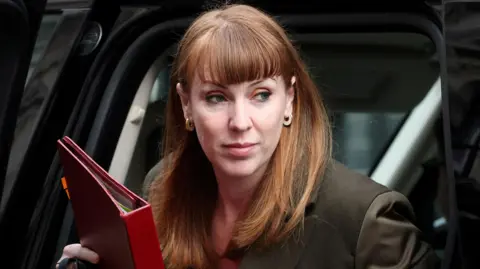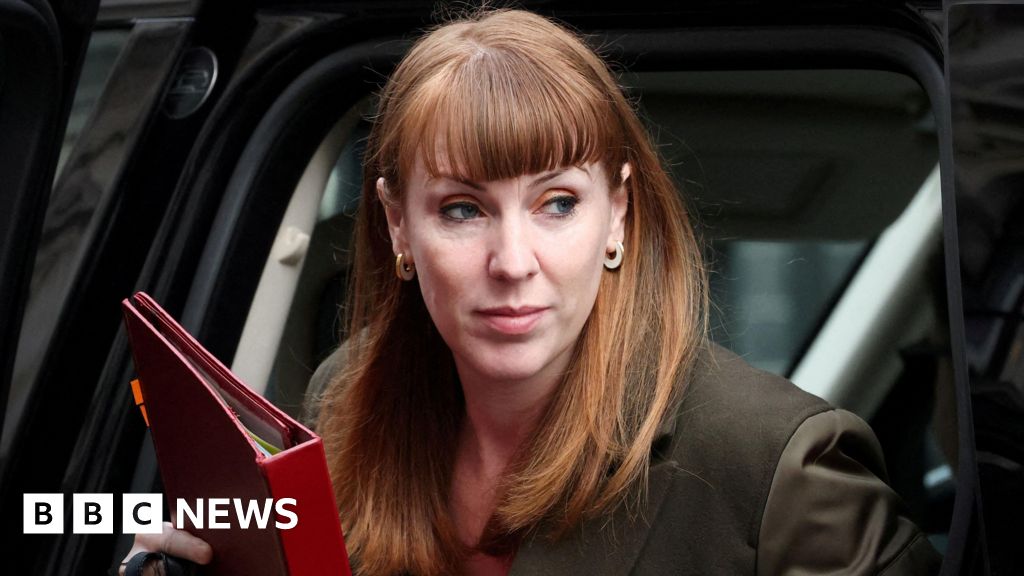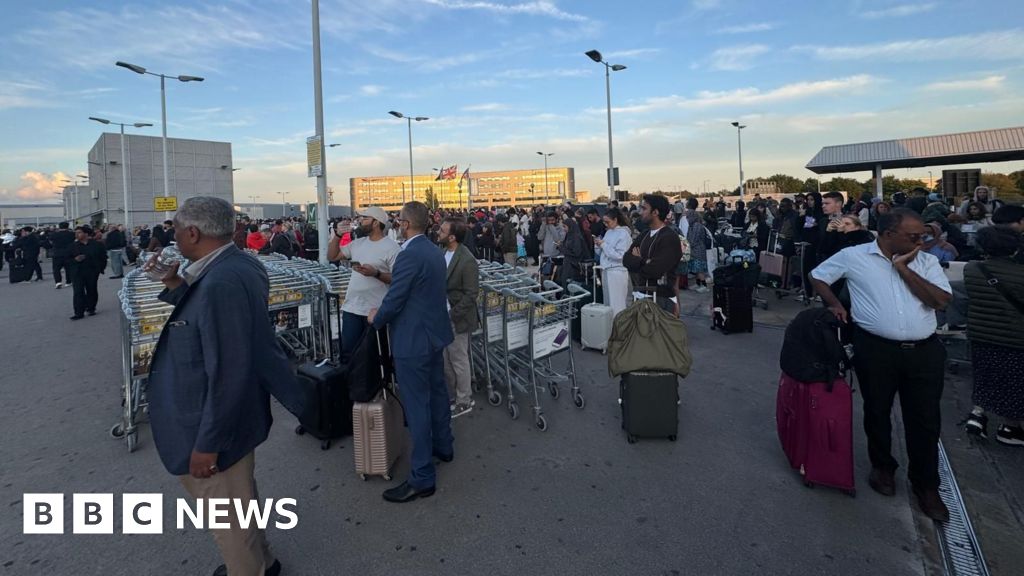Sam FrancisPolitical reporter and
Iain WatsonPolitical correspondent
Former Labour deputy leader Harriet Harman said the party must pick a woman from outside London to replace Angela Rayner as the party’s deputy.
The party’s ruling National Executive Committee (NEC) has set out a sped-up schedule for a deputy leadership race, shaping up to be a battle over the direction of the party.
Nominations open on Tuesday, with a winner announced on 25 October. To stand, candidates must have the backing of at least 80 MPs, and either 5% of local parties or three Labour affiliated groups.
Baroness Harman, who served as deputy to Gordon Brown and Ed Miliband, said the party needed to pick a replacement who will “broaden the reach of the leader and galvanise the party”.
Baroness Harman told BBC Radio 4’s Today programme: “I think that, in terms of extending the breadth of the leadership, it probably needs to be somebody from outside London and it definitely needs to be a woman.
“We need somebody who is not a counterpoint to the leader, but is complementary to the leader, will broaden the reach of the leader and galvanise the party.”
The first hustings for MPs will be held on Wednesday, and contenders will have until 17:00 BST on Thursday to secure the support of at least 80 Labour MPs – 20% of the parliamentary party.
Those that fail to reach this first hurdle will be eliminated from the race.
Candidates must then secure either the support of at least three affiliates’ groups, including two unions, or 5% of local parties. Those who clear the bar face a vote by party membership.
From early soundings, unions would want to see someone in the mould of Angela Rayner: a woman, who has a good relationship with the unions and would be a champion of Labour’s workers’ rights agenda and investment in public services.
They would also support someone who is not from London and the south-east, and is an effective media performer.
However, the unions weren’t organised in advance for Rayner’s departure – and the rush to find a replacement.
 Reuters
ReutersFrom 13 September, local parties and groups affiliated to Labour will be able to announce who they are backing as candidates until 27 September.
The party is also planning a hustings at its annual conference at the end of September, with online participation promised to “maximise member engagement”.
Ballots will then open for members and affiliated supporters on 8 October and close on Thursday 23 October at noon, with the result announced on Saturday 25 October.
NEC member Abdi Duale said the party wanted an inclusive process but warned that “a contest lasting six months to a year would be irresponsible”, given the “need to focus on government priorities ahead of next year’s elections in Wales, Scotland and across England”.
Foreign Affairs Committee chairwoman Dame Emily Thornberry became the first high-profile figure to announce she was thinking about a bid on Sunday.
Dame Emily was a shock omission from Sir Keir’s government, having been his shadow international trade secretary in opposition.
On Monday, former transport secretary Louise Haigh called for sweeping “economic reset” and reforms to Labour’s rigid fiscal rules in an article in the New Statesman, but fell short of declaring a bid to become deputy leader.
In government, Haigh was seen as a leading left-wing voice at the cabinet table, before quitting last year after it emerged she pleaded guilty to a fraud offence a decade ago.
Speaking at the weekend, Labour’s mayor of Greater Manchester, Andy Burnham said the contest was an opportunity to have a “discussion about the internal management”.
Burnham warned the cabinet lacked “balance” after Rayner’s exit, and called for another voice from the north of England as deputy.
He suggested Haigh or ex-Commons leader Lucy Powell would help to counter what he called the “London-centricity” under Sir Keir’s leadership.
Shabana Mahmood, who on Friday was appointed home secretary in a major shake up of ministers, has ruled herself out of the race; as did fellow cabinet minister, Health Secretary Wes Streeting.
Other ministers have been floated as potential replacements, including Alison McGovern, while among MPs, NHS doctor Rosena Allin-Khan has been touted.
Barry Gardiner, a member of Jeremy Corbyn’s shadow cabinet, also ruled himself out of running and said the party needed a deputy leader who will “stand up for democracy in the party” after months of MPs being treated like “voting fodder”.
Any deputy leader needed to have the “confidence of ordinary backbench Labour MPs” who fear Labour drifting right under pressure from Reform UK, he added.
Three unions, Unison – the UK’s largest – the GMB, and shopworkers’ union USDAW, will try to agree a common candidate, the BBC understands.
However, their choice of candidate may be restricted as MPs have only two days in which to get through the first hurdle of the contest.
Some on the left of the party believe this will severely narrow the field.
Richard Burgon, a shadow minister when Jeremy Corbyn led Labour, told the BBC that having only two days for MPs to cast their nominations was “profoundly anti-democratic”, saying: “I warned a few days ago that there was a possibility of the Labour leadership trying to create the mother of all stitch-ups by rushing this through in an extremely truncated process.”
Even MPs beyond the party’s left believe it will be much easier for a candidate anointed by the leadership to get on the ballot as all they are required to do is prevail upon the payroll vote of ministers to sign their nomination papers.
This could be a contest which influences Labour’s future direction.
Many unions have been pressing for wealth taxes and lifting the previous Conservative government’s two child benefit cap; while some want the Chancellor to relax her rules on debt and borrowing.
But it won’t be clear until Thursday evening if a candidate that backs that agenda will garner enough support from their fellow MPs to enter the contest in the first place.
The contest was triggered by Rayner’s resignation following an investigation which found she had breached the ministerial code after admitting she had underpaid £40,000 in stamp duty on a new home earlier this year.
Her resignation sparked a major reshuffle, which saw Rayner replaced by David Lammy as deputy prime minister and Steve Reed at the housing department.
Sir Keir now faces the prospect of a party conference overshadowed by manoeuvring for the deputy leadership role vacated by Rayner, who was popular among the grassroots.
Rayner, who was seen as a bridge between government and the backbenches, was both deputy Labour leader and deputy prime minister.





Comment ×